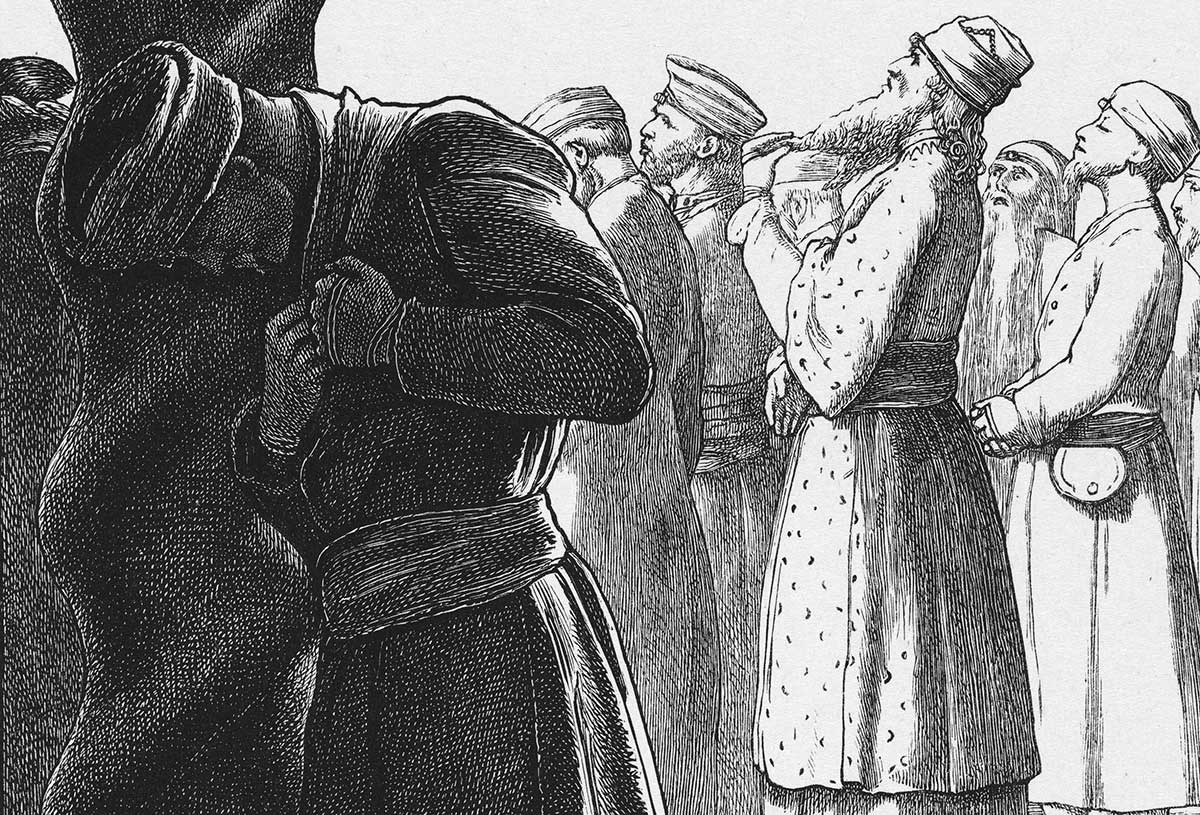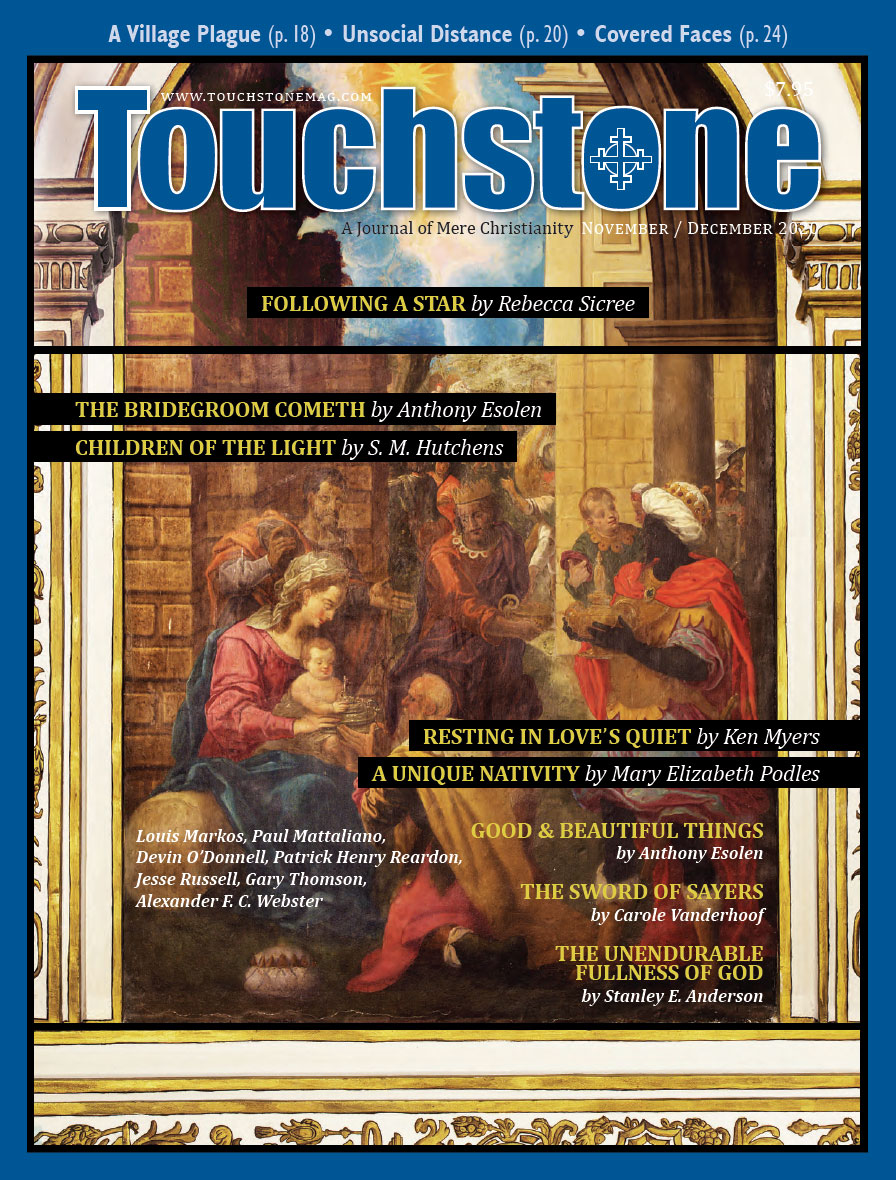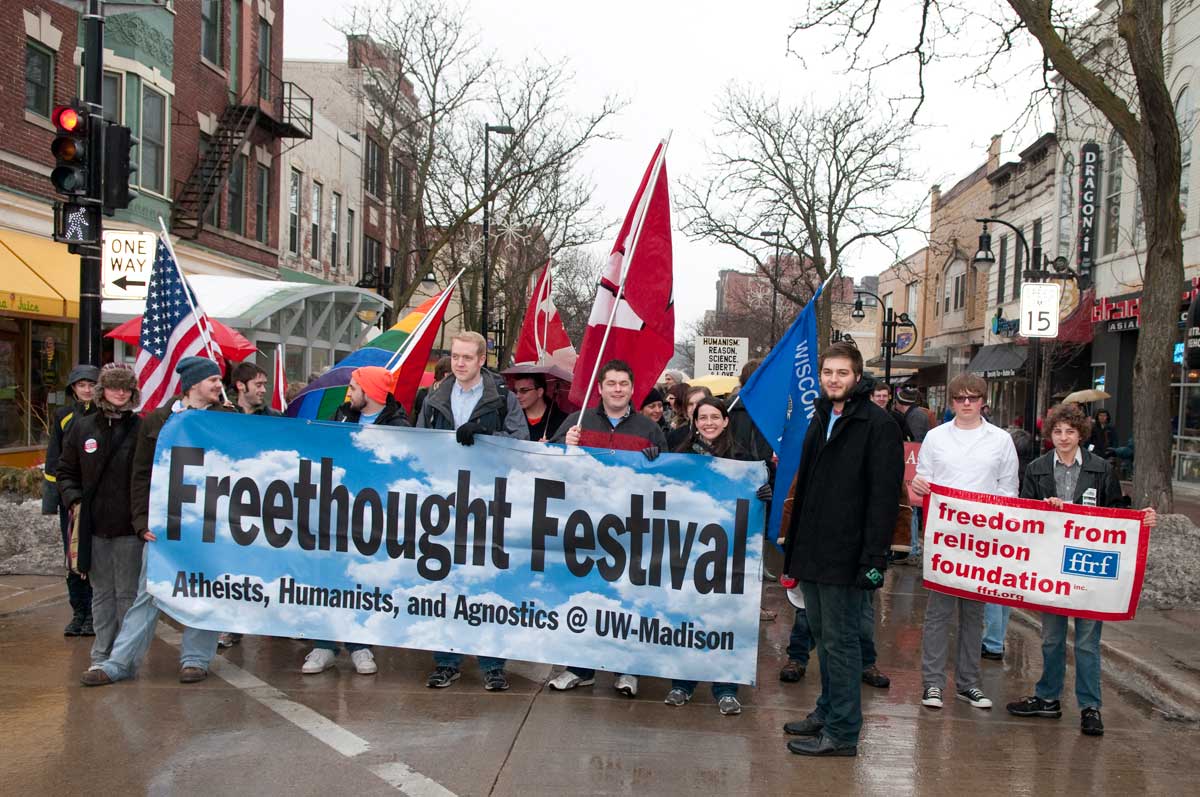View
Social Wandering
Alexander F. C. Webster on One Word That Explains the Current Delusions
We seem to have exhausted our vocabulary to describe the constellation of crises of radical left-wing provenance besetting America of late: extreme, unprecedented, extraordinary, unbelievable, outrageous, horrendous, despicable, frightening, ungodly, Orwellian, and so on. There is one word, however, that may capture our centrifugal culture of hypocrisy, lying, deception, vulgarity, hostility, rage, viciousness, malice, burning, looting, mayhem, destruction, statue-toppling, history-denial, economic class envy, race obsession, madness, and derangement. That word comes from my own Orthodox Christian spiritual tradition.
That word is prelest.
Prelest is how the medieval Slavonic language rendered the older Greek word plani ("wandering" or "going astray"). The fifth-century Greek scholar St. John Cassian translated the Greek plani into Latin as illusio to appeal to the Gauls in the Roman Empire in what is now France. The Latin word would suggest spiritual "delusion." But the root of prelest is the Slavonic lest—"flattery" in English. So we may also translate prelest as "self-flattery." It is a state of mind that leads a person to imagine that he is something that he is not—above all, that he is "holy" or "righteous" or "just" without question, or "holier than thou," as the pejorative English phrase would have it.
In a Russian television interview in July 2018, Professor Alexei Ilyich Osipov of the Moscow Theological Academy in Sergiev Posad explained prelest in this lucid way:
What does it mean when we say, "I flatter myself?" It is not in the sense that I try to convince myself that I am so good, that I am the best in the world. No, you don't even need to convince me, I know that I am good. And it's not at all important to me if someone criticizes me for something; that person is simply a fool, he simply doesn't understand that I am good. That's what it's all about! Well, there are stupid people, it's true. Who is stupid? The one who criticizes me. He doesn't appreciate that I am the best in the world. . . . Prelest is that state in which a person sees himself as a saint. Perfect. Worthy of God, worthy of all God's gifts. . . .
In the Cloisters & Beyond
In the ancient Church—and enduring in Orthodox Christianity to the present—many Church Fathers and spiritual elders have warned monks and nuns, in particular, of the temptation of prelest. Those who embrace the monastic vocation in "fulltime" pursuit of a life of ascetic self-denial, cultivation of the virtues, holiness, and spiritual perfection are, ironically, more likely to succumb to spiritual delusion and self-flattery by regarding themselves as pious saints in the present moment.
I say ironically, because the situation is, prima facie, an inevitable, no-win paradox for monks and nuns. How can they not rejoice in and take satisfaction from their progress on the spiritual path to theosis (i.e., becoming more and more like Christ and, therefore, increasingly like God, without, however, reaching equality with God)? Ought they to slow down that progress lest they become puffed up and fall into prelest? Of course not! As any spiritual father knows, the simultaneous cultivation of the virtue of diakrisis ("discernment") is also necessary for a monk or nun—or any Christian, for that matter—to focus consciously and always on Christ as the telos ("end") and to downplay one's own personal progress as merely a reflection of the glory of the Lord. It's all about Christ, not us.
St. Macarios the Great of Egypt (a.d. 391) saw the same temptation of prelest rampant beyond the monasteries and cloisters: "[A]s there is no person completely free from pride, there is no person who would be completely free from the action on him of a subtle delusion called 'conceit.'" As a false, grandiose understanding of oneself, prelest is most readily expressed to others through pride and conceit, but also through hypocrisy and lying.
Two Kinds of Lying
Alexander F. C. Webster (Archpriest), Ph.D., is Dean & Professor of Moral Theology Emeritus at Holy Trinity Orthodox Seminary in Jordanville, New York, and Adjunct Professor of Religious Studies at George Mason University in Fairfax, Virginia.
subscription options
Order
Print/Online Subscription

Get six issues (one year) of Touchstone PLUS full online access including pdf downloads for only $39.95. That's only $3.34 per month!
Order
Online Only
Subscription

Get a one-year full-access subscription to the Touchstone online archives for only $19.95. That's only $1.66 per month!
bulk subscriptions
Order Touchstone subscriptions in bulk and save $10 per sub! Each subscription includes 6 issues of Touchstone plus full online access to touchstonemag.com—including archives, videos, and pdf downloads of recent issues for only $29.95 each! Great for churches or study groups.
Transactions will be processed on a secure server.
more on culture from the online archives
more from the online archives
calling all readers
Please Donate
"There are magazines worth reading but few worth saving . . . Touchstone is just such a magazine."
—Alice von Hildebrand
"Here we do not concede one square millimeter of territory to falsehood, folly, contemporary sentimentality, or fashion. We speak the truth, and let God be our judge. . . . Touchstone is the one committedly Christian conservative journal."
—Anthony Esolen, Touchstone senior editor













